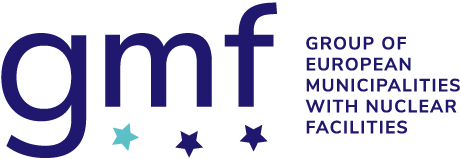GMF starts collaboration with Pomeranian region as Poland plans for its first nuclear power plant
Poland plans to have nuclear power from 2033 as part of the energy mix. The Department of Regional and Spatial Development of the Pomeranian region in Poland organised on 24 January an online meeting for local government representatives in the area of the planned location of the new nuclear power plant in order to exchange information and experience from municipalities hosting existing nuclear power plants in Europe. Approximately 55 representatives from different local governments in three counties in the Pomorskie Voivodeship attended the meeting.
The Deputy Marshal of the Pomeranian Voivodeship, Mr. Leszek Bonna, opened the meeting and welcomed all participants. The Deputy Director of the Department of Regional and Spatial Development of the Pomeranian Voivodeship explained the need for to cast a practical outlook on the nuclear investments, particularly for local government units. The contributions from other municipalities having experienced the same process is a great inspiration to start early the preparation to host nuclear facilities.
The Group of European Municipalities with Nuclear Facilities (GMF) was represented by:
– the coordinator of GMF, Meritxell Martell, who provided an overview of GMF and the good practices on nuclear governance adopted by the members of GMF;
– Ted Linquist, coordinator of KSO presented the Swedish association of municipalities with nuclear facilities (KSO) and the uniqueness of local safety committees as institutions for dialogue between representatives of local communities appointed by the cabinet and industry. He also pointed out the fact that also Sweden is planning to build new nuclear power plants for the first time in over 40 years;
– Fabian Sjöberg, vicepresident of GMF and mayor of Östhammar highlighted the veto right of local governments and the importance of trust building throughout the process;
– Mats Rosen, head of business development in Kävlinge kommun and former head secretary at the local safety committee of Barsebäck nuclear power plant pointed out the need to establish a local structure for exchanging information between the mayor’s office and the management of the nuclear power plant,
– Csaba Dohoczki, vicepresident of GMF who cooperates with the Hungarian association of municipalities hosting the nuclear facilities Páks II talked about the control committee of TEIT and the independent measurement system run by citizens at the nuclear power plant;
– Douglas Bamsey, advisor of the Nuclear Legacy Advisory Forum (Nuleaf which is also member of GMF) in the United Kingdom shared the challenges and solutions regarding the construction of Hinkley Point C in the rural area of Somerset.
The speakers provided insights into the local socio-economic development associated with the construction and operation of nuclear power plant infrastructure in different European countries. Despite differences in institutional and political cultures, there are a shared set of needs and expectations surfaced among local communities, such as workforce development, housing requirements, infrastructure enhancement, education and training provisions, tourism promotion and overall well-being. The exchange of good practices emerged as a powerful tool in navigating these common challenges.
